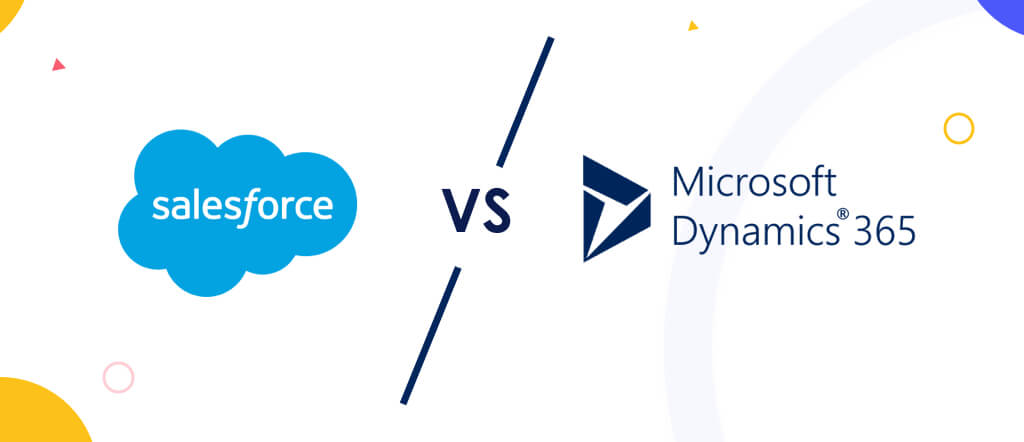A Customer Relationship Management (CRM) system helps teams and business leaders manage interactions with important contacts in one place, specifically sales and marketing activities. But even though “customer” is part of the name, most CRMs offer services for a broad range of stakeholders, including managing employees and vendors.
While that may seem straightforward, there is a similar service called an Enterprise Resource Planning (ERP) system, which is like a CRM, but generally more focused on operations management. ERPs are designed to help organizations save money by offering tools that ensure regulatory compliance and manage inventory tracking. Many ERPs offer a CRM component as well, but professionals often complain these tools don’t meet their needs.
This situation has led to the growth of Salesforce, which set itself apart by focusing on making the best stand-alone CRM, then allowed independent developers to add ERP components around it. But even though this formula has propelled Salesforce to being the most popular CRM solution in the world, that doesn’t mean you should automatically sign up for a Salesforce account.
Microsoft Dynamics 365 merges what you would expect from the best ERP and CRM systems into one. And since it’s a Microsoft product, you gain the convenience of direct access to Dynamics 365 apps within Office 365 tools—including Excel and Word.
So which one is the best solution for your organization? Keep reading to learn some of the key differences between the services and the criteria you should use to decide.
Why Salesforce Is The #1 CRM?

Strategic acquisitions are what separate Salesforce from its competitors. Instead of just concentrating on its core offering, its leadership team has steadily bought the best complementary services that integrate with it. This means Salesforce customers benefit from a regular stream of useful new services and upgrades to features.
Another major driver for the platform is AppExchange, a community that allows developers to make custom integrations and sell them to Salesforce customers. If you’ve searched for paid apps on your smartphone, you know generally how this type of marketplace works. So rather than building a custom tool with little variation for multiple clients, a developer can design it one time, set a price, then release it on AppExchange for businesses to purchase. This benefits everyone connected to the Salesforce ecosystem because it lowers the cost for a business that needs a new tool, and allows developers to sell products in addition to their services.
Salesforce also offers friendly prices for small businesses. It’s platform isn’t very expensive when you get started (especially for small teams), but the extra features you need later on can get quite expensive. This is largely due to most of these extras being subscriptions rather than one-time purchases.
Why Microsoft Dynamics 365 Is Worth Considering?
While Salesforce is known for being an excellent CRM, Microsoft Dynamics 365 is much better at balancing services for all parts of a business. It includes apps that cover the following 7 business functions: sales, marketing, service, finance, operations, commerce, and HR. It’s also possible to unbundle the apps, in addition to getting licenses for anywhere from 1 to an unlimited number of users. Depending on your needs, this can save you a considerable amount of money.
Entry-level pricing for Microsoft Dynamics 365 is higher than Salesforce, but extras cost much less. This usually makes it a better fit for more established businesses instead of startups.
When you look at the costs for Microsoft Dynamics 365 as opposed to Salesforce, the pricing strategies for both begin to make sense. A startup can afford the low upfront costs of Salesforce because it only needs to focus on growing new customers. A more stable business with a reliable sales pipeline will most likely prefer Microsoft Dynamics 365 because it offers a solution that works well for all departments in the organization.

How To Decide Which One To Use?
The names of the two services provide a hint for the intended purpose of each one. Salesforce tends to emphasize sales activities. Microsoft Dynamics 365 is also good for sales, but it has been designed to meet the needs of a wider array of business functions. This doesn’t mean you should avoid Salesforce if your organization isn’t focused on sales, such as a government agency, but it does highlight where the two vendors diverge.
Before selecting any solution, the best place to start is with a demo. Have some of your team take each service for a test drive so they can see which is the easiest to use. Salesforce and Microsoft Dynamics 365 both offer demos, so don’t skip this step. Just because one looks better on paper doesn’t mean you’ll get what you expect.
During the demo period, have your team experiment with the core functions of the service they think they’ll use. Once things are set up, have them install the related mobile apps on their phones to see how they work. You can usually determine quickly which one is a better fit.
Once you have the basics of what you plan to use running in the demos, find out how easy products from other vendors can be integrated with it. Do you use any legacy systems that will need to be connected to your CRM? If so, see if an integration solution for it already exists. If not, ask some developers what it would cost to create one. This is one area where Salesforce really shines. No other CRM compares to the options available on AppExchange, many of which are free. Microsoft Dynamics 365 has a limited number of integrations that are excellent, but it lacks a robust developer community like what Salesforce has created.
How Blue Whale Apps Can Help?
No matter which service you choose, every business needs at least a small amount of customized code to fully integrate Microsoft Dynamics 365 and Salesforce with their other systems. We’re experienced in creating solutions for both platforms, so you don’t have to worry about the CRM you choose not meeting your expectations.
Our team can handle all parts of the process, from reviewing what systems you already have in place, to implementing a plan for what you want to achieve. We specialize in end-to-end development for Fortune 1000 businesses and government agencies, including consulting, branding, UX design and hand-crafted code.
Recent projects have included projects within the healthcare, technology, public utilities, entertainment, retail, consumer products and automotive industries. And last year, Blue Whale Apps was named the #1 Mobile App Developers by AppFutura, Clutch, and Good Firms in 2019.
We are the leading experts in Salesforce and Microsoft Dynamics 365 consulting services. Contact us today!!









